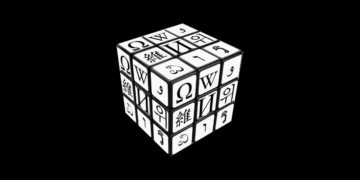 Jon Baskin in The Point:
Jon Baskin in The Point:
For a country so often believed to be anti-intellectual, it is striking how much of American political conversation has come to revolve around seemingly pedantic quarrels about terminology. Critical race theory, which dominated media analysis of the Virginia governor’s race this November, might have been a new term to many who tuned into the political news in the days following the election, but the shape of the argument about its meaning and function was so familiar that it is hard not to reach for a psychoanalytic vocabulary when describing it. The neurotic process commences when a term or theory that had started life decades ago at some obscure intersection between academia and left-wing activism—before CRT, there was political correctness, intersectionality and identity politics—begins to be publicized by progressive activists and commentators as a superior way to talk about some broader set of social phenomena. Taking advantage of its newly expanded—and usually piecemeal—application, right-wing critics then respond by seizing on the term as a blanket pejorative for an approach to social problems they oppose, while simultaneously connecting it to various other charter members of their lexicon of Bad Things (like Nazism and… Kant?). At this point, progressive intellectuals accuse conservative columnists of peddling “absolute nonsense” while at the same time deriding ordinary people who begin to apply the term for being either dupes (for falling for a “moral panic”) or bigots (for using the term to soft-pedal their own prejudice). Both progressive accusations imply that the people who use the new terms inappropriately are, at the very least, hopelessly confused about the meaning of their own words, which in turn allows right-wing critics to reprise the familiar accusation that progressives are always lecturing people about what to call things. Now the process has reached its terminal phase: the concept is too ideologically freighted to serve as anything other than an occasion for meta-discussions about the debate itself (like this one), which means we are close to the end of one cycle—and the beginning of its compulsive repetition.
More here.
